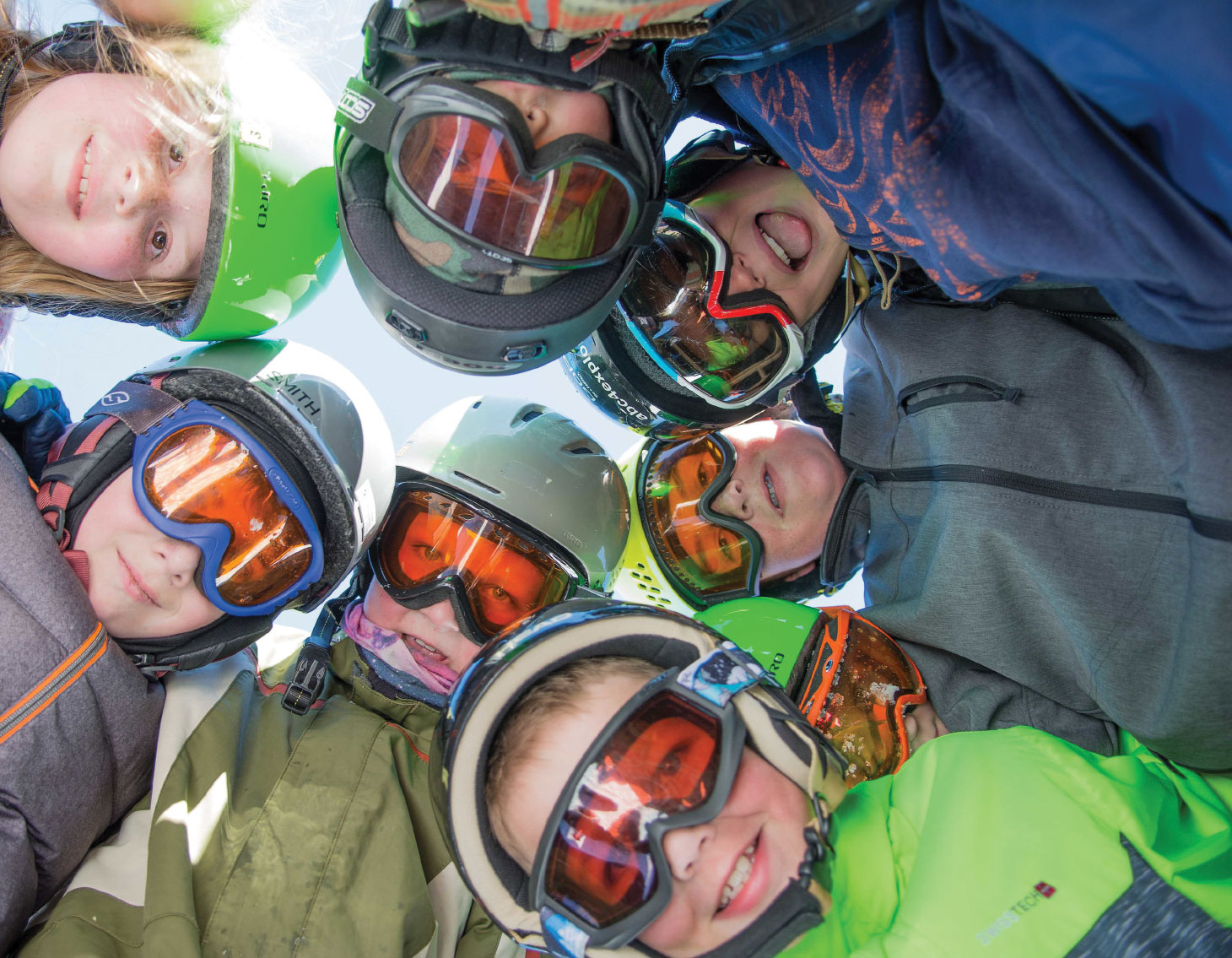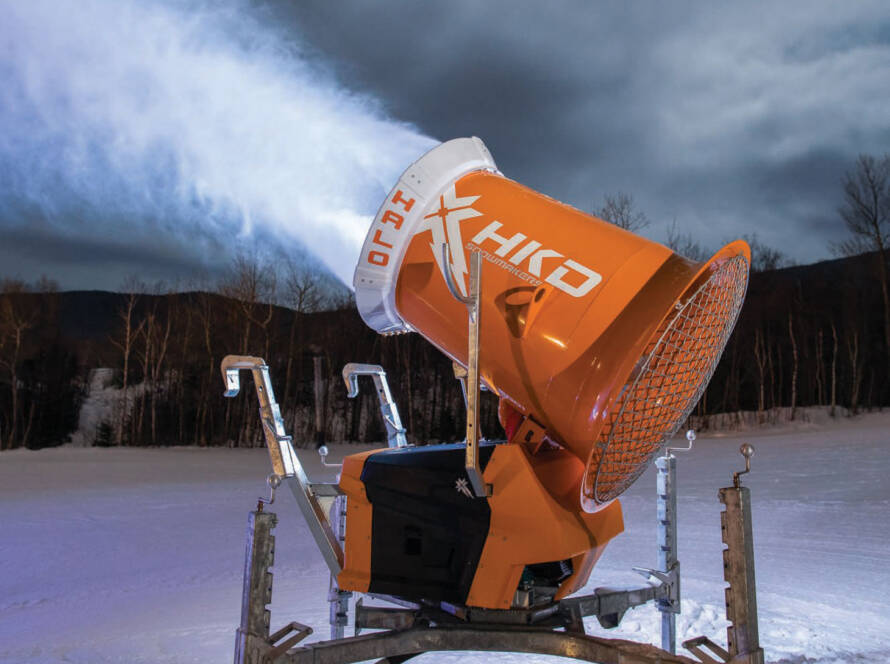Snow sports can be transformative. That simple belief is the driving force behind the Share Winter Foundation – an American grantmaking organization focused on getting young people involved in alpine skiing, snowboarding and Nordic skiing.
On paper, the foundation provides roughly $1 million in grants each year to non-profit ski and snowboard programs in 21 states with the overarching goal of increasing physical activity and fostering a lifelong love of snow sports. In reality, the impact runs much deeper.
“We don’t just write checks,” Share Winter’s chief executive officer Constance Beverley said.
In return for three to five years of funding, each of Share Winter’s grantees agree to meet specific national standards, engage in serious data collection and build connections with other local youth programs. These requirements help the grantees attract other funders and makes their programming more sustainable, says Beverley.
This season, Share Winter is funding 16 non-profit organizations that serve 32,000 youth across roughly 60 ski areas. For many kids these programs provide a “gateway experience” to the slopes and an improved sense of self.
“When you go to the mountains or you’re out in nature, you’re transformed to a place that’s so outside of your normal that your concept of possibility and who you are and how you exist in the world changes,” Beverley said.
A former Wall Street lawyer and tech sector employee, Beverley has always had an affinity for the mountains and a passion for bringing more diversity to snow sports. She became CEO of Share Winter in 2017 and is slowly helping shift the face of an industry that has been predominantly white and predominantly male for much of its history.
“We’re hoping that by showing a more universal and diverse group of people who are engaging in these sports, even at a young age, that kids will say, ‘Hey, this sport is for me,’” she said.
A fresh coat of paint
The fall of 2018 marked a rebirth for the organization, which since 2012 had been known as the National Winter Sports Education Foundation and had operated solely on donations from a handful of private family foundations. In October, Beverley and her team unveiled a new name and a new look to announce the foundation’s entrance into the public fundraising sphere.
Using lingo from her tech sector days, she describes the foundation’s first few years as an incubation period, during which it had to prove its value and business model. With a solid foundation in place it felt like the right time for a for a rebrand. Not only is Share Winter easier to remember, but it also gets closer to the heart of what the organization strives to do.
“We make winter sports accessible to a broader, more diverse community, sharing the joys, lessons and pure magic of winter sports with youth across the country,” Beverley said. “We were about to go out into the world and we thought, ‘Hey, why not a fresh coat of paint?’”
Today, the foundation is looking for support from individual donors and private companies with a lofty goal of getting 100,000 kids involved in snow sports by 2028.
Grassroots impact
Share Winter only provides grants to non-profit ski areas, youth serving organizations and public school programs focused on snow sports participation in the long run. In Richmond, Vt., a group of elementary students are reaping the benefits of the organization’s funding.
Snow Motion Richmond was founded by Richmond Elementary School physical education teacher Brian Godfrey six years ago. There are currently 550 kindergarten to Grade 4 students enrolled in the program, which provides free ski and snowboard lessons at Cochran’s Ski Area.
“I wanted to find something in our community that could bring kids together and find ways to help them be active,” Godfrey said.
A grant from Share Winter has allowed Snow Motion to purchase skis, snowboards and boots so the kids can spend more time on the hill and less time getting fitted for rented equipment. The new equipment also cuts down on the program’s overhead and enables Snow Motion to expand into other schools in the district.
“It was beyond our capabilities to raise that money and continue to pay for the program,” Godfrey said. “We wouldn’t have been able to grow without that help.”
One unintended consequence of the Snow Motion program is that it’s gotten the parents of participants back on the ski hill. “Quite a few family members skied when they were younger and it’s tough when you have a one- or two-year-old, but now that (the kids) have learned it in school, they’re starting to ski as families,” Godfrey said.
The National Winter Activity Center (NWAC) in Vernon, N.J., has been a beneficiary of Share Winter’s funding for the last four years. The NWAC is a kids-only downhill and nordic ski facility that provides free ski and snowboard instruction, healthy meals and equipment for thousands of young people each winter.
“It’s a sacred place for kids and it allows us to be able to focus on doing the right thing for any kids who traditionally don’t have access to winter activities,” said chief executive officer Schone Malliet, who was also a founding partner of the National Winter Sports Education Foundation.
The facility was built from the ground up at the site of a dormant ski hill in Vernon. It opened in 2015 and includes two chair lifts, a cross-country ski trail and runs designed for beginner to competitive-level athletes.
As a non-profit organization, the NWAC relies on external funding for everything from programming to snow-making. “We couldn’t do it without the support of Share Winter,” Malliet said. “(The foundation) provides resources to help us to support the program-side to get more kids there and to keep them coming back.”
Partnerships in action
One thing that sets Share Winter apart from other foundations is its collaborative approach to grantee relationships. Beverley says being open to learning allows both organizations to benefit. “We want to help people work within their communities,” she said. “We listen, we collaborate, we vet, we come to plans together – there is no universal way of doing things.”
SOS Outreach has been offering year-round outdoor programming for at-risk youth ages nine to 18 for the past 25 years. During the winter, it runs learn-to ski and snowboard mentorship programs for about 4,500 kids in Chicago, Minneapolis, Detroit and Park City through a partnership with Vail Resorts.
The organization partners with schools and youth agencies in those cities to identify kids who aren’t on a path to high school graduation for any number of reasons. Participants start out learning the technical skills of the sports and then are paired with a mentor who works with them on the mountain and gets them involved in community outreach through volunteerism.
“We’re able to take a traditional mentoring relationship and accelerate it because of the power of the outdoors,” SOS Outreach executive director Seth Ehrlich said. “It’s the most powerful platform that exists.”
By the time they age out of the program, the participants have gained leadership skills and have passed on what they’ve learned to new recruits as peer mentors.
The organization is in its first year working with Share Winter and the funding they’ve received has allowed them to reach more kids with their winter programming. As an established non-profit that’s worked with external funders for more than two decades, Ehrlich says he’s been struck by the genuine partnership with Share Winter.
“This is not a traditional foundation relationship that we’ve worked with previously,” he said. “They are an organization that’s very interested in creating a family and we’re honored to be part of that.”
By advocating for and supporting grassroots ski and snowboard programs, Share Winter is giving first-time experiences to thousands of potential lifetime enthusiasts each year.
Visit sharewinterfoundation.org to learn more.


![[image placeholder]](https://www.snowopsmag.com/wp-content/uploads/2023/09/placeholder@2x-890x664.png)